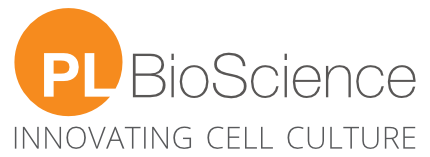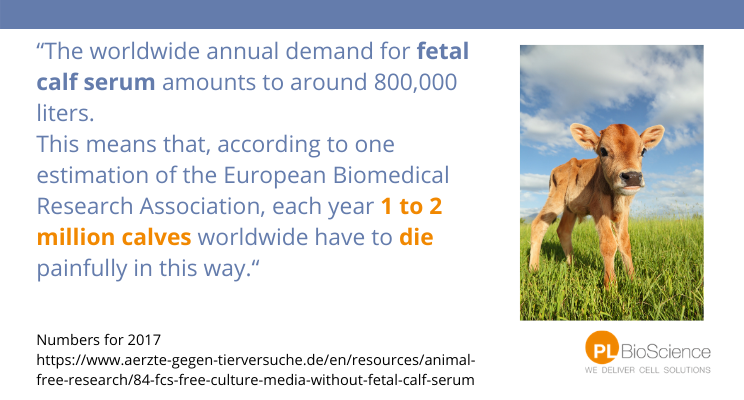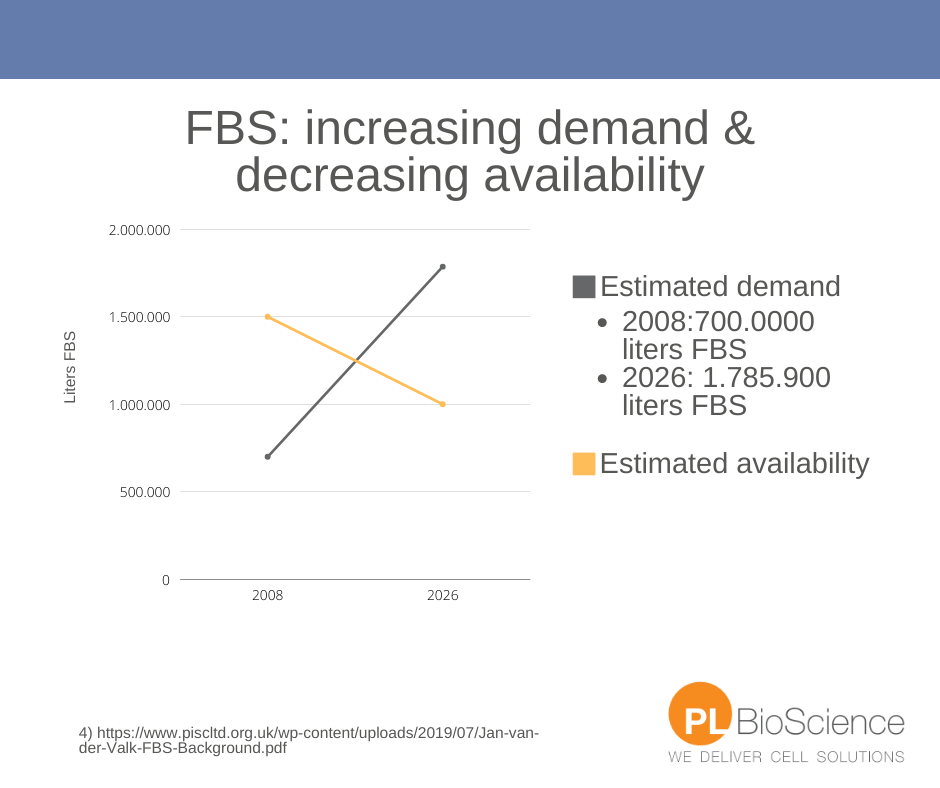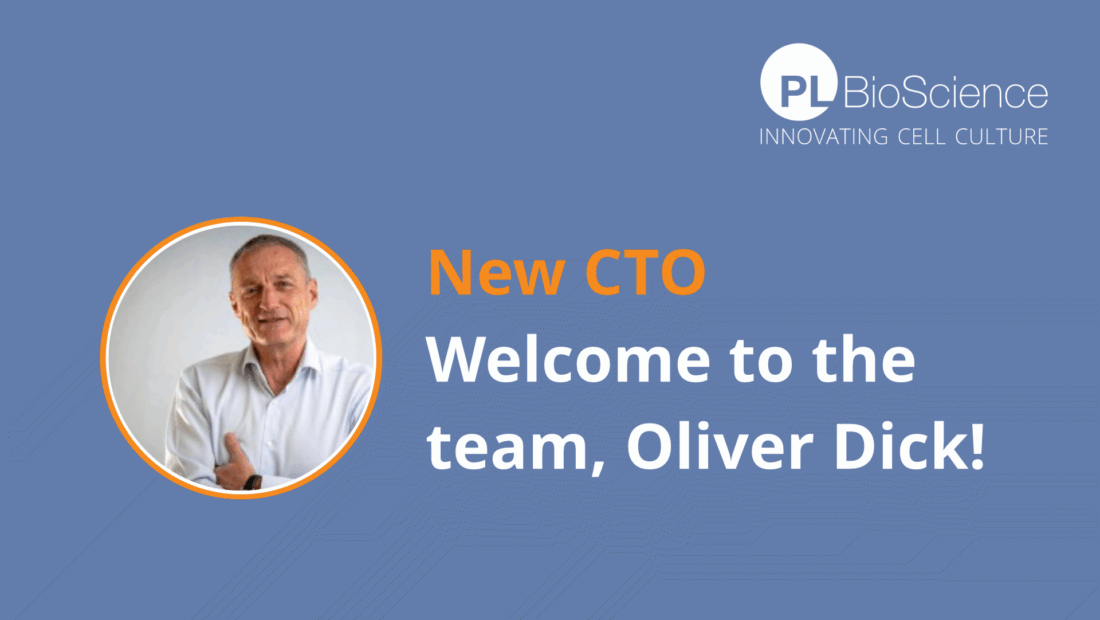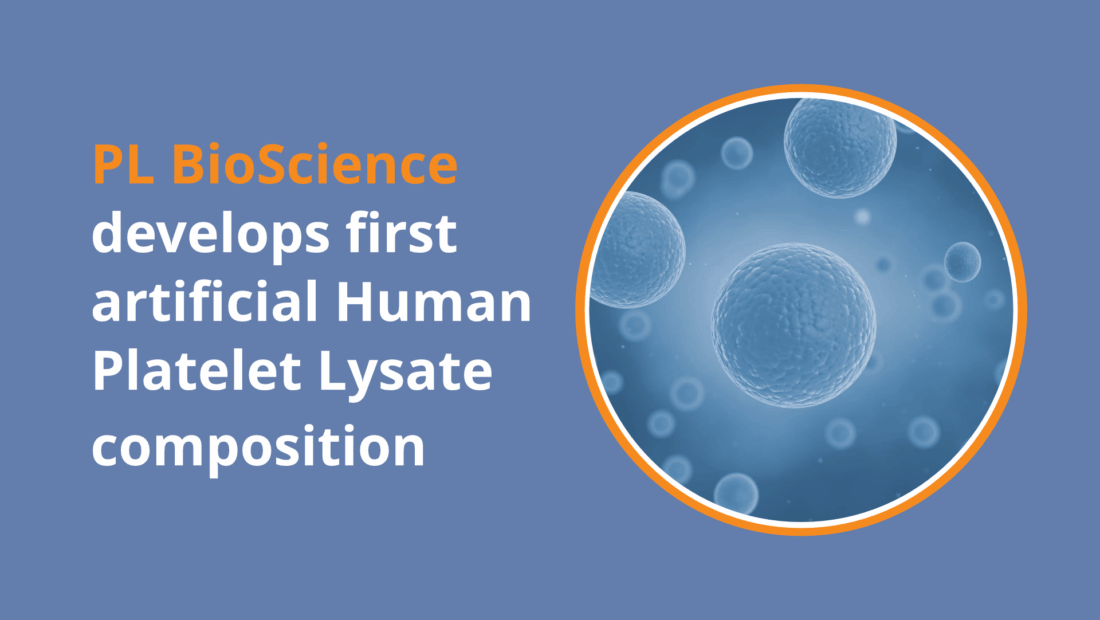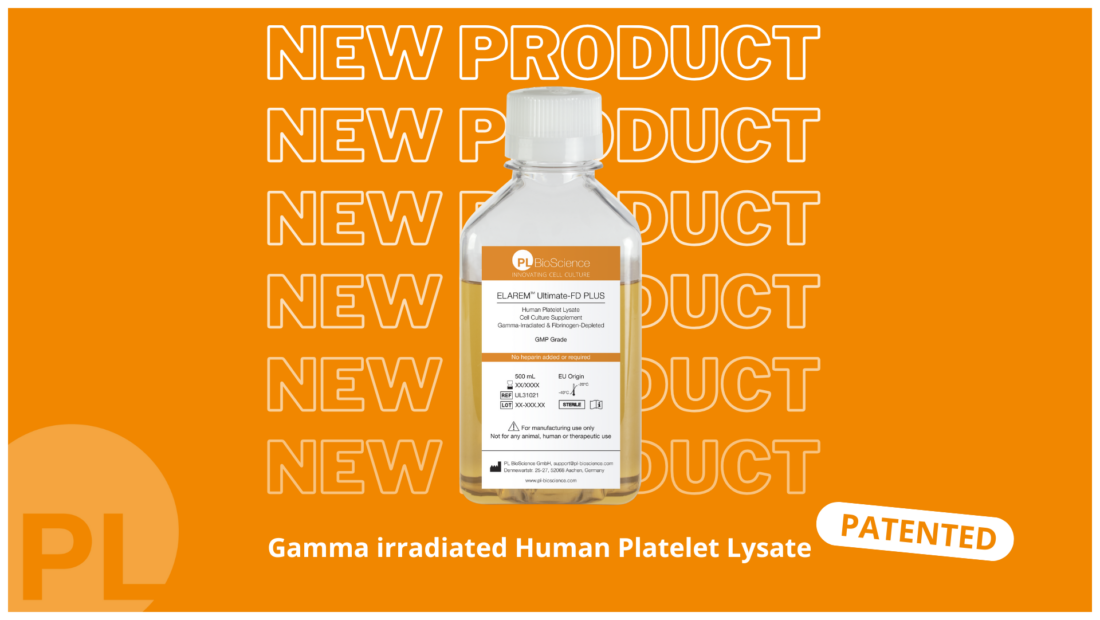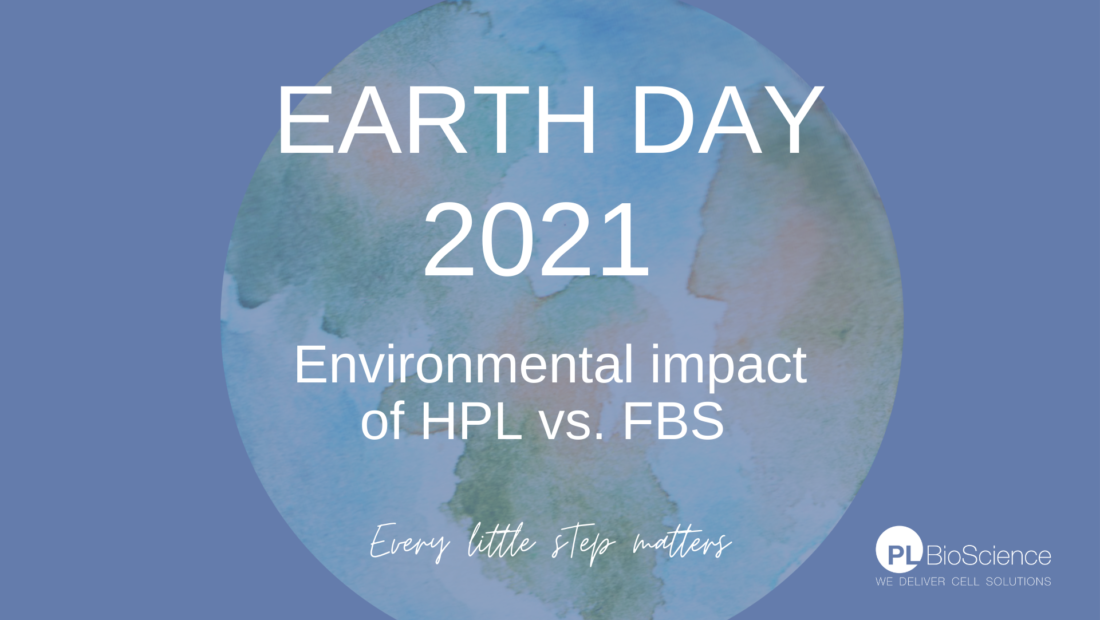
Environmental impact of HPL vs. FBS
World Earth Day 2021: Environmental Impact of HPL vs. FBS
What do HPL and FBS have to do with the Earth Day 2021?
The Earth Day raises awareness and educates people about a more sustainable living. For us, this means we educate about a more sustainable cell culture techniques and raise awareness for the grievances in current practices.
Are you questioning why this is important for yourself? Because drug development, vaccine development and future food development concerns all of us.
For all of these important products, cell culture is needed. And by this also cell culture media.
We take a closer look at the sustainability and environmental issues that come with most commonly used cell culture media.
And why there is a need to take action and raise awareness for alternative cell culture media as Human Platelet Lysate (HPL).
Why Human Platelet Lysate is more sustainable than animal-derived media
Of course, there are many factors, which play along with the sustainability when talking about cell culture media. These are for example the energy source used for the production, the transportation and cooling cycle. But one crucial factor is the raw material used.
Human Platelet Lysate
- is produced of already existing resources: recycling of transfusion approved human thrombocytes.
- There is no need for deforestation.
- The production is not dependent on the slaughter industry: No unborn calves die.
What is the Earth Day?
The Earth Day was established in the late 1960s, beginning of 1970s as an environmental movement worldwide. On that day different events take place to “diversify, educate and activate the environmental movement worldwide” (1). It should remind us to think about our consuming behavior and responsibility to take action and live a more sustainable life.
- Every year on 22 April with different topics
- Started in the late 1960s out of massive scandals and environmental pollutions in the USA.
- It was questioned and called attention to the human responsibility for environmental damage due to pesticides, oil catastrophes etc.
Why is there an environmental problem with Fetal Bovine Serum?
To answer this question, we have to take a look at the production of Fetal Bovine Serum (FBS, also called Fetal Calf Serum (FCS).
How is FBS produced?
Fetal Bovine Serum is a by-product of the dairy industry. In order to produce milk, cows need to give birth to a calve. When cows are slaughtered, some of them are still pregnant. The exact number of pregnant cows is still only an estimation. Even though associations like the ESPA (European Serum Products Association) state that no pregnant cows are slaughtered on purpose, there are still doubts that this is true (5).
„However, the production of fetal calf serum (FCS) is cruel. Immediately after slaughtering a pregnant cow, the fetus is cut out of her uterus. Then a big needle is stabbed between the ribs through the skin and muscles directly into the beating heart of the still living calf. Its blood is aspirated until the animal remains bloodless and dies. This procedure is performed without anesthesia, although it is considered that calf fetuses are already capable of suffering. “ (6)
Which environmental factors play along with the production of FBS?
- Rainforest deforestation in Brazil and other South American countries (illegal deforestation driven by price and increasing market needs)
- Deforestation results in higher risk of fires, droughts and higher CO2 emission in the atmosphere
The Raw Material for FBS are Cows at Cattle Farms, especially in South America:
„At present, about 70% of the deforested land in the Amazon is used for cattle (…)” (7)
FBS is ethically questionable
Besides the cruel way of production there is a problem with ethical dumping.
Ethical dumping means, the production* of FBS is not allowed within the EU, therefore it is outsourced in countries with lower ethical hurdles and a lower awareness for animal welfare (Brasil, South Africa, Australia, New Zealand, USA). (9)
*The extraction of FBS for commercial purposes is not allowed within the EU, therefore it is outsourced in countries with lower ethical hurdles and a lower awareness for animal welfare.
Why is it important to talk about the environmental impact of cell culture?
The Market of regenerative medicine, drug development and vaccine production is growing every year. This causes also the increasing need for cell culture media.
In 2017 it was estimated to have an annual amount of 800.000 Liters FBS per year, which would result in the need for 1 to 2 million unborn calves per years (6). But the demand for FBS is increasing, which would result in a need for rather 3,5 million unborn calves to produce the amount of FBS demanded.
- Increasing demand – decreasing availability : Due to emerging markets (e.g. in China and the Middle East) the demand for FBS increases. But environmental factors like droughts and floods lead to a lower supply and constraints for the “raw material” (cows). (8)
- Increasing prices, decreasing quality
“Growing demand, coupled with a lower supply has resulted in a volatile market for US FBS and consequently, prices have increased over 300% in the past few years. “(8)
Image: Numbers from market surveys and doctors against animal experiments (3, 4, 6)
How can we improve the current situation?
There are four tips we encourage you to do:
- Question your habits in the lab.
- Question your products used at work.
- Question your cell culture media.
- Use an alternative to FBS like Human Platelet Lysate (HPL).
Further advantages using Human Platelet Lysate instead of FBS
- Affordable price: optimized GMP production process, improved cell growth and less medium supplementation
- Reproducible – Lot-to-lot consistency: manufactured from pooled platelet units under sterile conditions. The lot-to-lot consistency ensures reproducible results without the FBS-related need for batch testing. This makes it possible for you to order only a certain amount of ELAREM Prime and not a yearly amount. You safe time, money and storage space.
- Ethical research: HPL enables to contribute to ethical justifiable trials and supporting animal welfare
Get an impression of our cell culture products: ELAREM™
Every little step matters and everyone of us has the chance to participate in a change. A change towards more sustainability in our daily lives, not only at home but also in the lab.
Sources
1) https://www.earthday.org/earth-day-2021/ (Internet 20.04.21)
2) Bundesministerium für wirtschaftliche Zusammenarbeit und Entwicklung: https://www.bmz.de/de/service/termine/2021/april/jahrestag20210422_tagdererde.html (Internet 20.04.21)
3) “Global Fetal Bovine Serum Market – Industry Trends and Forecast to 2026”: https://databridgemarketresearch.com
4) https://www.piscltd.org.uk/wp-content/uploads/2019/07/Jan-van-der-Valk-FBS-Background.pdf (Internet 20.04.21)
7) https://www.reuters.com/investigates/special-report/brazil-deforestation-cattle/ (Internet 20.04.21)
8) Fetal Bovine Serum: Supply and Demand for US FBS: https://www.rmbio.com/fetal-bovine-serum-supply-and-demand-for-us-fbs (Internet 20.04.21)
9) https://laborjournal.de/rubric/essays/essays2019/e19_16.php (Internet 20.04.21)
